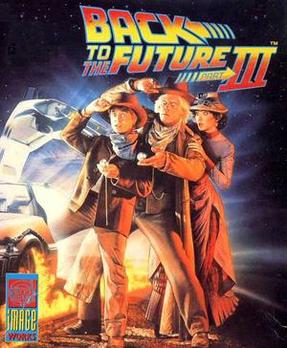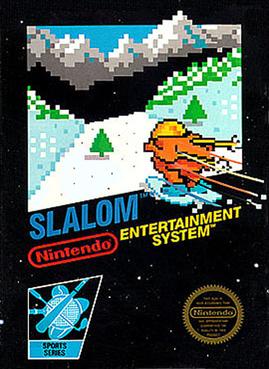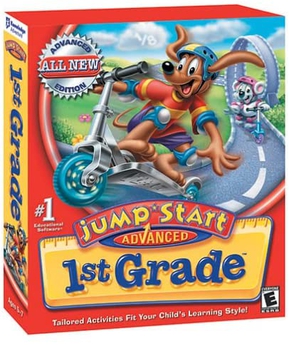
Viz is a British adult comic magazine founded in 1979 by Chris Donald. It parodies British comics of the post-war period, notably The Beano and The Dandy, but with extensive profanity, toilet humour, black comedy, surreal humour and generally sexual or violent storylines. It also sends up tabloid newspapers, with mockeries of articles and letters pages. It features parody competitions and advertisements for overpriced 'limited edition' tat, as well as obsessions with half-forgotten kitsch celebrities from the 1960s to the 1980s, such as Shakin' Stevens and Rodney Bewes. Occasionally, it satirises current affairs and politicians, but it has no particular political standpoint.

The Krypton Factor is a British game show produced by Granada Television for broadcast on ITV. The show originally ran from 7 September 1977 to 20 November 1995 and hosted by Gordon Burns.

Wacky Races is an American animated television series produced by Hanna-Barbera Productions in association with Heatter-Quigley Productions. It aired on CBS as part of its Saturday morning schedule from September 14, 1968, to January 4, 1969. The series features 11 different cars racing against each other in various road rallies throughout North America, with all of the drivers hoping to win the title of the "World's Wackiest Racer". The show was inspired by the 1965 comedy film The Great Race. This was the only non-game show produced by Heatter-Quigley; the show was intended as a game show in which children would guess the winner of each race, and those who answered correctly would win prizes, but CBS dropped these elements during development.

Bully Beef and Chips was a British comic strip, created by Jimmy Hughes. It first appeared in 1967 in the British comics magazine The Dandy. In 2007, a set of Dandy comics, scripts and storyboards created by Hughes, including material from Bully Beef and Chips, was sold at auction for £180,000.

B.C.'s Quest for Tires is a horizontally scrolling video game designed by Rick Banks and Michael Bate and published by Sierra On-Line in 1983. Versions were released for the Commodore 64, IBM PC, Atari 8-bit computers, ColecoVision, ZX Spectrum, MSX, and Apple II. Based on the comic strip B.C. by Johnny Hart, BC's Quest for Tires is similar to Irem's Moon Patrol from the previous year. A wheel-riding caveman is always moving forward through horizontally scrolling levels, and the player jumps or ducks as obstacles approach. The game's title is a play on the contemporaneous film Quest for Fire.

The Adventures of Bayou Billy is an action game released by Konami for the Nintendo Entertainment System in North America in 1989 and in the PAL region in 1991. It is a revised version of the 1988 Family Computer game Mad City (マッド・シティ), which has been modified with many graphical changes and an increase in the game's difficulty level. The game employs three play styles that were popular at the time: beat 'em up, light gun shooting and racing.

Sunset Riders is a side-scrolling run and gun video game developed and released by Konami as an arcade video game in 1991. It is set in the American Old West, where the player(s) take control of bounty hunters who are seeking the rewards offered for various criminals.

Fun House is an American children's television game show that aired from September 5, 1988 to April 13, 1991. The first two seasons aired in daily syndication, with the Fox network picking it up and renaming it Fox's Fun House for its third and final season.
Billy the Fish is a long-running cartoon strip in the British comic Viz that first appeared in 1983. Created by artist Chris Donald and writer Simon Thorp, Billy the Fish is, like many Viz strips, a lampoon of British comics – in Billy the Fish's case, that of football-themed strips such as Roy of the Rovers. The cartoon was adapted into an animated film by Channel 4 in 1990.

Smut was a British adult comics magazine that was launched on 1 May 1989.
A*mazing is an Australian children's television game show that aired between 16 May 1994 until 1998 on the Seven Network. It was famous for a relatively large and elaborate maze/obstacle course that was part of the show's studio set. A*mazing was hosted by James Sherry for the entire run of the series. A*mazing was produced at Channel 7 in Brisbane from 1994 to 1996 and then at Channel 7 in Perth from 1997 to 1998.

Metro-Cross is a platform game released in arcades by Namco in 1985. It was ported to the Amstrad CPC, Atari ST, Commodore 64, Family Computer, and ZX Spectrum.
Buster Gonad is a cartoon character in the British comic Viz. The strip involves the surreal adventures of "the boy with unfeasibly large testicles". During a storm, Buster's gonads were zapped by cosmic rays which enlarged them to an enormous size, so that he needs a wheelbarrow to carry them around. As a result, they are impossible to conceal and are therefore out on open display for everyone to see and marvel at.

Back to the Future Part III is a video game based on the film of the same name. The game is different from LJN's Back to the Future Part II & III video game released for the NES. The game was released in 1991 for the Genesis, Amiga, Amstrad CPC, Atari ST, Commodore 64, MS-DOS, Master System, and the ZX Spectrum. Each version of the game is more or less identical and all are loosely based on the popular film of the same name. The game was developed by Probe Software and published by Image Works and Arena Entertainment.
Ivor Lott and Tony Broke was a British strip which originally appeared in the comic book Cor!! on 6 June 1970, before moving to Buster when the two comics merged in June 1974. The comic strip lasted until the final issue of Buster on 3 January 2000. The comic was originally drawn by Reg Parlett and later continued by artists such as Jim Crocker and Sid Burgon.

Slalom, originally released as VS. Slalom, is a skiing sports video game developed by Rare and published by Nintendo in 1986 for the Nintendo VS. System in arcades. It was then released for the Nintendo Entertainment System in North America in August 1987 and in Europe later that year. The player races in a series of downhill slalom skiing runs while navigating past flags and obstacles before time expires. It was developed by Tim and Chris Stamper and its music was composed by David Wise.

Shrek Smash n' Crash Racing is a kart racing video game released in November 2006. The game is based on the Shrek franchise. Players have the option of playing one of twelve Shrek characters, using racing and combat skills to defeat other racers. It was released for the GameCube, PlayStation 2, PlayStation Portable, Nintendo DS, and Game Boy Advance systems. Shrek Smash n' Crash Racing was the final game based on a DreamWorks Animation film to be released on the GameCube.

Shonen Jump, officially stylized SHONEN JUMP and abbreviated SJ, was a shōnen manga anthology published in North America by Viz Media. It debuted in November 2002 with the first issue having a January 2003 cover date. Based on Shueisha's popular Japanese magazine Weekly Shōnen Jump, Shonen Jump was retooled for English readers and the American audience, including changing it from a weekly publication to a monthly one. It featured serialized chapters from different manga series and articles on Japanese language and culture, as well as manga, anime, video games, and figurines. The premiere issue of Shonen Jump also introduced the first official English translations of One Piece, Sand Land, Yu-Gi-Oh!, YuYu Hakusho, and Naruto.

JumpStart Advanced 1st Grade is a personal computer game created by Knowledge Adventure. It replaced the previous JumpStart 1st Grade released in 1995 and updated in 2000. As its name suggests, it was made to teach first grade students. From 2003–2008, it was distributed as the "Fundamentals" disc in a 3- or 4-disc package of the same name, though recently a factory error caused many JumpStart Advanced 1st Grade packages to instead contain JumpStart 3D Virtual World: Trouble in Town going by the same name.

Jaco the Galactic Patrolman is a Japanese manga series written and illustrated by Akira Toriyama. It was serialized in Weekly Shōnen Jump from July to October 2013, with the eleven chapters collected into a single volume by Shueisha. It follows Jaco, an extraterrestrial police officer that has come to Earth to protect it from an evil alien attack.
















